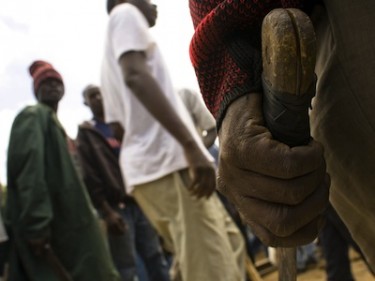All-in-one business smartphone, the Nokia E7, now available in Kenya
Nairobi, Kenya, 21 April 2011– Nokia has today announced the launch of the highly-anticipated business smartphone, Nokia E7, in the Kenyan market.
The Nokia E7 is an optimal business phone with great connectivity to work and personal email on a 4-inch touch display and QWERTY keyboard enabling users create, edit and share office documents on a fast, secure intranet access. Nokia E7 users will also be able to easily set up their calendar and sync it with Microsoft Outlook.
“People are continuing to look for solutions that suit both their work and personal life; in business circles this is known as the ‘consumerisation’ of IT. The Nokia E7 gives people the confidence to bring their own smartphones to the workplace to connect securely to corporate messaging servers,” said Kenneth Oyolla, General Manager for Nokia East and Southern Africa.
He added: “On the other hand, whether you are an artist, entrepreneur, university student or aspiring world traveller, the Nokia E7 is the only smartphone you will need to get the world’s best mobile navigation and mapping application, thousands of apps, millions of music, and a rich messaging experience.”
With its tilting, 4-inch ClearBlack display, full keyboard and a fast access to a wide variety of apps directly on the homescreen, the Nokia E7 is the key to having a successful day in or out of the office. Importantly, the device supports business applications from leading enterprise technology partners including Microsoft and IBM.
For business users, Nokia E7 provides direct, secure and real-time access to email, calendar, contacts, tasks and the corporate directory through Microsoft Exchange servers, as well as Office Communicator Mobile, developed by Microsoft for Nokia smartphones, which brings presence and corporate instant messaging.
The WhatsApp Messenger is a smartphone messenger available for Nokia, iPhone, Blackberry and Android phones. WhatsApp uses your 3G or Wi-Fi (when available) to message with friends and family. This is a switch from SMS to WhatsApp to enable consumers send and receive messages at no cost. The app can be downloaded from http://www.whatsapp.com/nokia/
Additionally, a wide range of entertainment and social services available on the Nokia E7 make it the perfect off-duty companion, and the Ovi Store offers a wealth of local apps. These include “Daily Nation” for Kenyan News, Business, Sport and Entertainment and the application gives access to in depth coverage and analysis of issues and breaking news and “Rich”, an application that keeps you updated with the Nairobi Stock Exchange. The Nokia E7 users will be able to use “AroundMe”, an app that allows one to easily and quickly find important businesses and services in your surrounding or any other location. For example, one can find restaurants, banks, gas stations, and other local services with ease. It enables you to view maps, directions, routes, street view, read reviews and even call the business.
The new arrival offers drive or walk navigation in 80 countries. The latest commercial version of Ovi Maps, available immediately via Ovi Store or Ovi Suite, adds visibility to subways, trams and trains, real-time traffic, safety alerts, visibility to parking and petrol stations, speed limit warnings, and improved search and location sharing capabilities. The Nokia E7 will be selling in retail between 52,000 -54,000 Kenya Shillings.
Here are more reasons why the Nokia E7 is the all-in-one business smartphone:
- Easy access to private and business email
- Create, edit and share office documents and view PDF files with Adobe Reader
- Fast, secure intranet access with the built-in VPN
- High-resolution photos and HD video with the 8 megapixel camera and dual LED flash
- HDMI connectivity to project files, videos and images onto large screens
· 16 gigabytes of on-board flash memory
· USB-On-The-Go, enabling easy file sharing by connecting a USB stick to the smartphone



